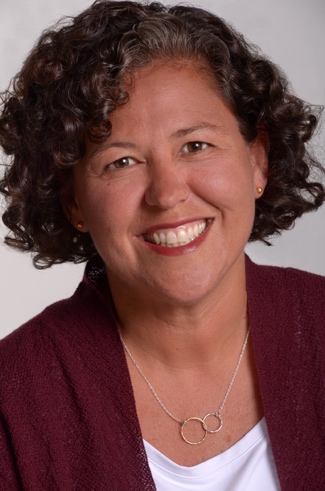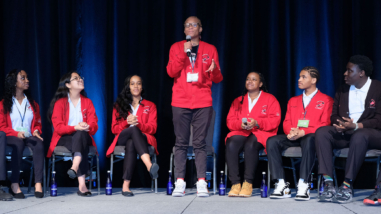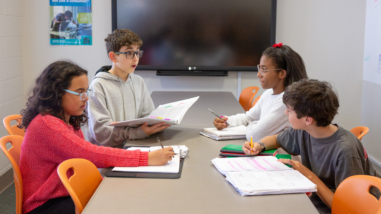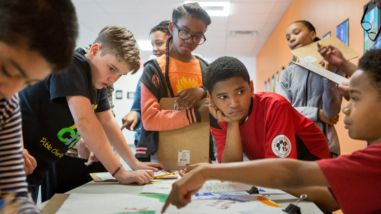Marc Chun: What do you see as the most significant challenge facing our schools today?
Monica Martinez: The ways we teach students are irrelevant to their day-to-day lives and what students need to be able to know and do in the twenty-first century. Our students are waiting for our schools to catch up with their lives. But our schools and the education system overall both cling to outmoded practices. We simply cannot prepare our students for the twenty-first century by only teaching them to memorize or recall knowledge. They have to be able to apply their knowledge to multiple situations, and we need to provide them with learning experiences that are relevant to their lives. That’s the heart of teaching for deeper learning. If we cannot do that, our schools will remain an artificial environment—a place where learning has no meaning for our students, and where students are just followers instead of being empowered to be leaders of their own learning.
Marc Chun: Why did you create the Deeper Learning Planning Guide? Who is it for, and how is it different from the Deeper Learning book you wrote last year?
Monica Martinez: I created the Guide because I heard from many educators, teachers and principals alike, who want to integrate the practices from my first book (Deeper Learning: How Eight Innovate Public Schools Are Transforming Education in the 21st Century-Ed.) in their own classrooms and schools. I’ve met many educators who have a broader vision for student success, one aligned to deeper learning outcomes. What they need is the opportunity to think about how they can lead their school in making the necessary shifts. It is my hope that the Guide gives them a place to start thinking about what they can do to design their school for deeper learning, as well as a practical and clear process to manage change—from articulating a vision for student success, to identifying the key strategies that will help them establish the four conditions necessary for deeper learning.
Marc Chun: How can we lower the barriers to let other schools benefit from the approaches you’ve written about?
Monica Martinez: We have to find ways to communicate directly with principals and teachers about what is possible—to encourage them to pursue a broader vision for student success beyond just academic achievement. But there is so much “noise” out there—about the value of the Common Core, what college and career readiness is or is not, and especially the use of annual testing—that our educators are under fire, and parents and students alike are inundated with conflicting messages. We need to cut through this noise—re-state our vision for student success, and shine a light on what students are capable of day-to-day as self-directed and capable learners. And with that, we need to help educators see and understand the conditions that have to be put in place in their schools to ensure students can transfer their knowledge and skills to college, career, and citizenship—a strong school culture where students are trusted and respected, and a professional community of teachers who share in the leadership of the school. Only then will educators be able to provide meaningful and dynamic learning experiences where students are engaged in the deliberate practice of multiple skills, such as critical thinking, problem solving, effective communication, and productive collaboration. I hope the Planning Guide is one way to help them get there.




